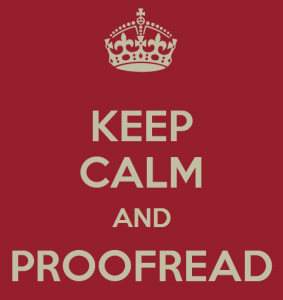 Court reporters are trained to write phonetically. We hear it; we write it. When all the stars are aligned, the spoken word goes directly to our fingers without any hesitation. We are capturing the record verbatim.
Court reporters are trained to write phonetically. We hear it; we write it. When all the stars are aligned, the spoken word goes directly to our fingers without any hesitation. We are capturing the record verbatim.
But sometimes — just sometimes — what we hear (and what we write) is not necessarily what was said, if that makes sense. But this potential for error is actually one of the reasons a court reporter creates a better record than voice-recognition software. It is our ability to comprehend what was said that enables us to correct the mistakes. When we scope and proofread our transcripts, we do not do it in a vacuum. We use our understanding of the subject matter of the deposition and of the parties and their positions when we scope and proofread our transcripts to make sure that they are, in fact, accurate reflections of the record, not just parrot-like repetitions of sounds.
Reading for sense is probably a better way to describe proofreading in the court reporting world. Yes, proofreading should catch the typographical errors, but ideally spell-check will flag those words. It’s the misheard or mispronounced words that make proofreading one of the most important stages of transcript production. A classic example is “fecal sac” and “thecal sac.” Both things exist — but, trust me, the expert neurosurgeon witness was not talking about a fecal sac even though it sounded like she was.
And then you have homophones (words that sound alike, different spelling). Think “principle” and “principal” or “reign” and “rain.” Every court reporter I know has sent out a transcript containing one of these bloopers at least once in their career. It’s surprising how easily our brains read the mistake and make sense of it, which makes proofreading, by necessity, a slow process.
From the Journal of Irreproducible Results, an excerpt from “Candidate for a Pullet Surprise,” a poem by Mark Eckman and Jerrold H. Zar:
I have a spelling checker,
It came with my PC.
It plane lee marks four my revue
Miss steaks aye can knot sea.
Eye ran this poem threw it,
Your sure reel glad two no.
Its vary polished in it’s weigh,
My checker tolled me sew.
Punctuation: And it’s not just about the words! Punctuation does matter. You cannot — absolutely cannot — punctuate based solely on the way words are spoken. A pause does not mean you insert a period, and just because the witness ended all of his sentences in a higher pitch does not mean his answers were all questions — although some of them probably were.
It is the reporter’s understanding and comprehension of the case that enables her to distinguish between “Let’s finish up Mr. Smith” and “Let’s finish up, Mr. Smith.”
But the most challenging is actually the fairly fractured way people actually speak. Punctuation would be easy if deponents and attorneys all spoke in complete sentences with no misplaced modifiers or incomplete sentences, but the reality is that no one speaks that way. It is the court reporter’s job to take what was actually said and punctuate it in a way that conveys the meaning of what was said.
Dashes let the reader know the speaker inserted commentary mid-sentence: “The children — they grew up in France and went to school there — speak English and French. They came to visit us in March or April — wait, last month was June — March.”
Punctuation also clues the reader in to the tone of the exchange. Was the witness interrupted mid-answer or did he just trail off? Was the answer responding to the question that was asked or to a question that was anticipated?
Without proofreading for sense and insightful punctuation, you have a transcript with words but — sometimes — no meaning.
In order to avoid last-minute deposition scheduling problems, download our Deposition Scheduling Report and Checklist.